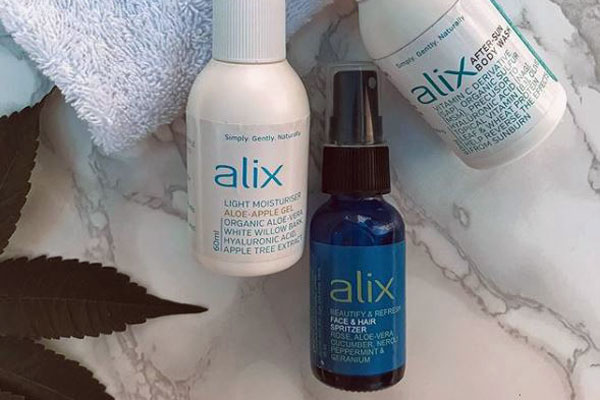8 Common Mistakes on Boat Charter and How to Avoid them
Running batteries too low
The boat's batteries keep your food and drink refrigerated, power the winches, charge your computer batteries and run the lights and electronics. Needless to say the demand on batteries on modern boats is constant. If batteries get too low they can reach a point where they will not accept charge from the motor's alternator, and you will find yourself without power. Keep a close eye on the system's amp meter, and ensure the batteries stay at least 60% charged at all times, even if it means running the motor at anchor or motor sailing in enough breeze to sail.
Leaving the dinghy unsecured
Failure to secure the dinghy is surprisingly easy after a day ashore, tired and busy transferring stores and bodies aboard. In the confusion no one properly ties the painter. I apply a rule that the first person out of the dinghy takes the painter and helps with unloading the dinghy, then hands the painter to the skipper, the last person out of the dinghy and who is ultimately responsible for securing it.
Driving the outboard motor onto the beach
Take care when coming ashore or in shallow water. Your dinghy's outboard gives you a lot of freedom to explore those quiet coves where you can get away from the crowded village docks for a day. Shear the propeller pin and you will be rowing while waiting for a replacement. It is an easy fix and most outboards have spare pins located on the motor somewhere, but you will need some mechanical ability and the necessary tools.
Fouling the propeller
Keep a watch for obstructions that might foul the propeller on your charter boat: a slack dinghy painter, fishing nets or general flotsam. If you do catch something with the propeller the engine will likely stall. Have someone look over the side to try and see what's caught. You may need to sail to shelter before sending someone down with a knife.
If you continue to restart and drive the engine there is a mechanism in the prop drive designed to break before excess loads transfer to the gearbox and causes serious damage. Once this mechanism shears you no longer have the use of that engine, other than to charge batteries.
Excessive use of the power winches
Larger charter boats have power winches to make your crew's job easier. Crew members unfamiliar with power winches can get into trouble, the result potentially being torn sails, fittings ripped from the deck and even injury.
On starting a power winch, ensure all lines are released and clear to run, and observe the winch's progress as well as the job it is doing. This should be a two-person job: one winching and the other monitoring the result. Should it load up unexpectedly, the motor noise will change. Quickly take your finger off the power button, and check what is caught or still secured. Sometimes when there is already high load on a line, the winch will not give you clear warning. This is why you need the person observing the progress and checking all lines are released and clear to run.
Raising and rolling sails
Take your time raising the mainsail, making sure all the reefing and halyard retrieval lines run free, and that the stack pack sail bag will not hinder the sail's release.
As the mainsail is raised, battens invariably get caught on the lazy jacks, which exist primarily to aid lowering the sail. If possible have a crew member stationed to free the mainsail's battens as their ends catch the lazy jacks.
Holding the boat dead into the wind does not guarantee the battens will not catch on the way up. You may have to come down five degrees, allow the main to flop over and the battens to clear at that critical stage of hoist past the lazy jack, then tack to clear the other side and repeat as necessary. I very rarely get the main up in one continuous hoist. Be prepared to lower the halyard a few inches to clear and then resume.If you continue to hoist the mainsail with snagged battens, the sail bag will tear from the boom as it goes up with the sail.
If your boat has a furling main, ensure the sail's retrieval line is released and everything is clear to run. If damage occurs to the furling mechanism in the mast you will be without a mainsail for the duration of your charter. Or worse, you will be stuck with one you cannot get down.
Losing personal items, either overboard or by theft
Expect to occasionally lose a hat, a pair of sunglasses or other pieces of personal gear from on deck. It's as much a part of sailing as the wind blowing and the boat rocking in the waves. The best advice is to hold things tightly and carry a spare.
As for intrusions of the human kind, boat charters generally operate in safe locations amongst like-minded people who are friendly and honest. But of course security of valuables is a consideration, and you may feel the need lock up when in port. I have never locked a boat at anchor and dislike the idea that I ever should need to do so. Most people do lock up however.
Prevent the temptation of an opportunistic local by putting equipment such as fishing rods below decks overnight.
Holding onto a sail well above its wind range
This is mainly an issue with catamarans, as they provide such a stable platform it is easy to ignore increasing wind strength and keep full sail up longer than is wise. You will be given a wind range to reef the main and reduce the headsail; it is good advice worth heeding. Genakers when provided are a particular risk. They are light weather sails.
None of the above need cause apprehension about what's in store on your charter, or be of concern once you are underway. That's as long as common sense prevails, and you apply your practical skills in boat handling to those unexpected matters that will inevitably arise as you enjoy your sailing holiday.





